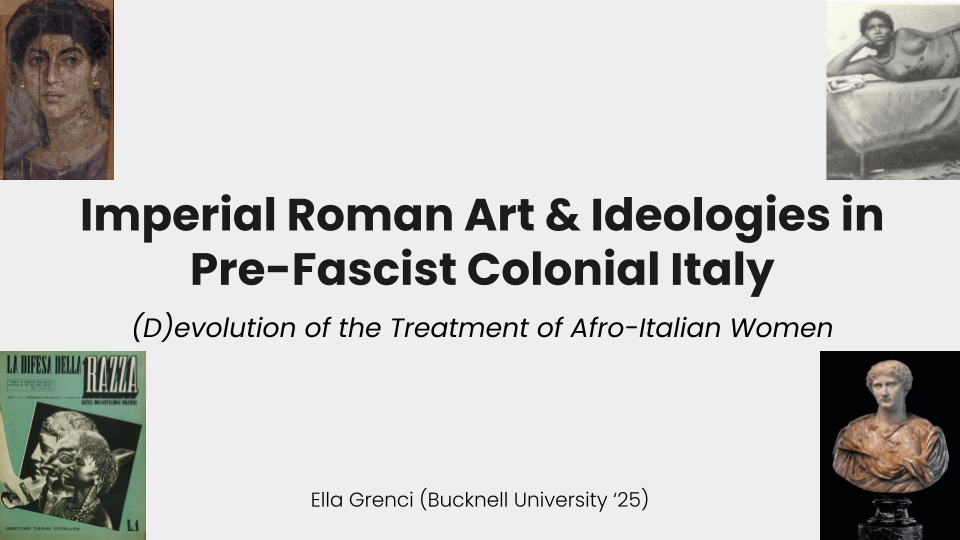
Imperial Roman Art & Ideologies in Pre-Fascist Colonial Italy: (D)evolution of the Treatment of Afro-Italian Women
Author:
Ella Grenci ’25Co-Authors:
Faculty Mentor(s):
Anna Paparcone, Italian StudiesFunding Source:
N/AAbstract
Imperial Roman Art and Ideologies in Pre-Fascist Colonial Italy: (D)evolution of the Treatment of Afro-Italian Women
When considering the impact of the Roman Empire, its tyrannical government is regarded as unsurpassed. However, Rome’s seemingly brutal rule must be evaluated in other facets besides the physical violence perpetrated against the conquered territories. Drawing on 19th and 20th-century visual publications, funerary portraits, denari (coins), and monumental architecture of Imperial Rome, this presentation examines the nature of North African provincial integration into the Roman canon and pre-fascist colonial Italy’s lack thereof. Although the original imperial imaginary, the so-called “Hannibal prototype”, defined the North African powers as threats, it evolved into one that called for the integration and persistence of provincial customs. Through a close analysis of the depiction of provincial women in art relative to Rome’s primary enemies, the Dacians and the Parthians, I demonstrate how the African woman is not artistically abstract, rather she is depicted through a cohesive combination of Italian-Roman and African provincial artistic conventions. Conversely, the art of 19th and 20th-century colonial Italy reveals the fetishization and exoticization of African women. Italian Unification and the Scramble for Africa accompanied by aestheticization and futurist primitivist rhetoric barbarized the African woman and rendered her as an object of power and an object that gives power to colonists. Although I draw parallels between the violent physical nature of pre-fascist colonial Italy and Imperial Rome, the presentation affirms that the former’s paradoxical attraction and repulsion socially excludes and dehumanizes North African women, and therefore distorts and adversely surpasses the Roman Empire’s original and integrative imaginary they sought to replicate.